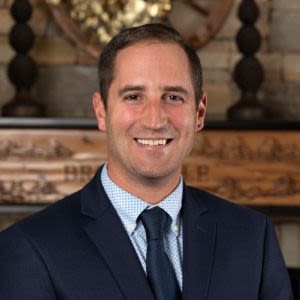






Brookdale Premier Signature Program
Verified Center
This provider's information has been quality-checked by Recovery.com's Research Team for accuracy and completeness, including center verification through appropriate third-party organizations.
Treatment Focus
This center treats substance use disorders and co-occurring mental health conditions. Your treatment plan addresses each condition at once with personalized, compassionate care for comprehensive healing.
Primary Level of Care
Offering intensive care with 24/7 monitoring, residential treatment is typically 30 days and can cover multiple levels of care. Length can range from 14 to 90 days typically.
Treatment Focus
This center treats substance use disorders and co-occurring mental health conditions. Your treatment plan addresses each condition at once with personalized, compassionate care for comprehensive healing.
Primary Level of Care
Offering intensive care with 24/7 monitoring, residential treatment is typically 30 days and can cover multiple levels of care. Length can range from 14 to 90 days typically.
Provider's Policy
Brookdale Premier Signature Program accepts most insurances.
Brookdale Premier Signature Program
Brookdale Premier Signature Program
About Brookdale Premier Signature Program
Brookdale’s Signature Program provides discreet surroundings, concierge service, personalized and individualized treatment, and clinical excellence. Recovery is paramount and of the utmost importance to Brookdale’s clinical team, as they help clients navigate through the early stages of the recovery journey.
Experience Elevated Treatment Services
At Brookdale’s Signature Program, clients will find an environment that balances clinical sophistication with superior services for a unique experience. Whether clients are an executive or the head of their household, Brookdale Center strives to understand each client and meet their specific needs.
Luxury Amenities
• Private and well-appointed cabin with living space, work area and fireplace
• Customized treatment plan that focuses on personality traits
• Access to electronics to honor outside obligations
• Individual wellness plan curated by Brookdale’s wellness director
• Private yoga & Reiki sessions, as well as personal training plan
Access Multifaceted Modalities for Well-Rounded Care
No matter what clients are trying to cope with—substance use, mental health issues, trauma, relationship and family dynamics—they will have access to Brookdale’s masters-level clinicians trained in an array of modalities. Focusing on healing mind, body and spirit, they use:
• Cognitive behavioral therapy (CBT)
• Dialectical behavior therapy (DBT)
• Motivational interviewing
• 12-Step philosophies
• Wellness therapies
Treatment Services
• Secluded detox room
• 5 individual sessions per week with primary therapist
• 1 weekly family session with family program director
• 1 weekly session with leadership to help ensure quality experience
• Designated clinical multi-disciplinary team
• Psychiatric evaluation
• Access to GeneSight DNA testing & biofeedback therapy
Brookdale’s Signature Program
Brookdale’s Signature Program includes personalized holistic therapies, gender-specific therapy, and addiction interaction disorder treatment using the Patrick Carnes Method. Brookdale also offers Seeking Safety therapy for trauma, addiction, and comprehensive healing.
A Word from the Signature Program’s Clinical Director
“I feel incredibly blessed to be a part of what makes Brookdale the premier destination for treatment. Our Signature Program is designed to offer an exclusive and elevated experience to those looking for an individualized treatment program, offering the highest quality of clinical and medical services.”
– Samantha McComsey, BA, CADC, ASAT, AMAT
Testimonials
Highlights from the Center
Highlights
These highlights are provided by and paid for by the center.
1-on-1 Counseling
Customized Treatment Plans
Co-Occurring Disorders Treatment
Lakeside
Center Overview
Treatment Focus
This center treats substance use disorders and co-occurring mental health conditions. Your treatment plan addresses each condition at once with personalized, compassionate care for comprehensive healing.
Joint Commission Accredited
The Joint Commission accreditation is a voluntary, objective process that evaluates and accredits healthcare organizations (like treatment centers) based on performance standards designed to improve quality and safety for patients. To be accredited means the treatment center has been found to meet the Commission's standards for quality and safety in patient care.
Insurance Accepted
Cash Pay Rates
Estimated Cash Pay Rate
Center pricing can vary based on program and length of stay. Contact the center for more information. Recovery.com strives for price transparency so you can make an informed decision.
Meet Your Care Team

Samantha McComsey
Clinical Director & Director of Signature Program
BA, CADC, ASAT, AMAT

Amy L. Durham
Chief Executive Officer

Dr. Joseph Garbely
Medical Director
M.D., D.O., DFASAM, FAPA

Mallorie Schwartzman
Chief Operating Officer

Andrew Gold
Clinical Supervisor
BS




Levels of Care






Your Care Options
Specializations
Alcohol
Using alcohol as a coping mechanism, or drinking excessively throughout the week, signals an alcohol use disorder.
Drug Addiction
Drug addiction is the excessive and repetitive use of substances, despite harmful consequences to a person's life, health, and relationships.
Family Therapy
Family therapy addresses group dynamics within a family system, with a focus on improving communication and interrupting unhealthy relationship patterns.
Prescription Drugs
It's possible to abuse any drug, even prescribed ones. If you crave a medication, or regularly take it more than directed, you may have an addiction.
Trauma
Some traumatic events are so disturbing that they cause long-term mental health problems. Those ongoing issues can also be referred to as "trauma."
Who We Treat
Executives
Executive treatment programs typically directly support the needs of people who manage businesses and may provide flexible schedules and office space to allow work during treatment.
Young Adults
Emerging adults ages 18-25 receive treatment catered to the unique challenges of early adulthood, like college, risky behaviors, and vocational struggles.
Pregnant Women
Addiction and mental health treatment meets the clinical and psychological needs of pregnant women, ensuring they receive optimal care in all areas.
Professionals
Busy, high-ranking professionals get the personalized treatment they need with greater accommodations for work, privacy, and outside communication.
Approaches
Evidence-Based
A combination of scientifically rooted therapies and treatments make up evidence-based care, defined by their measured and proven results.
Family Involvement
Providers involve family in the treatment of their loved one through family therapy, visits, or both–because addiction is a family disease.
Medical
Medical addiction treatment uses approved medications to manage withdrawals and cravings, and to treat contributing mental health conditions.
Twelve Step
Incorporating spirituality, community, and responsibility, 12-Step philosophies prioritize the guidance of a Higher Power and a continuation of 12-Step practices.
Therapies
1-on-1 Counseling
Patient and therapist meet 1-on-1 to work through difficult emotions and behavioral challenges in a personal, private setting.
Meditation & Mindfulness
A practiced state of mind that brings patients to the present. It allows them to become fully aware of themselves, their feelings, and the present moment.
Family Therapy
Family therapy addresses group dynamics within a family system, with a focus on improving communication and interrupting unhealthy relationship patterns.
Motivational Interviewing and Enhancement Therapy (MET)
This approach is based on idea that motivation to change comes from within. Providers use a conversational framework that may help you commit to recovery.
Relapse Prevention Counseling
Relapse prevention counselors teach patients to recognize the signs of relapse and reduce their risk.
Twelve Step Facilitation
12-Step groups offer a framework for addiction recovery. Members commit to a higher power, recognize their issues, and support each other in the healing process.
Yoga
Yoga is both a physical and spiritual practice. It includes a flow of movement, breathing techniques, and meditation.
Conditions We Treat
Trauma
Some traumatic events are so disturbing that they cause long-term mental health problems. Those ongoing issues can also be referred to as "trauma."
Substances We Treat
Alcohol
Using alcohol as a coping mechanism, or drinking excessively throughout the week, signals an alcohol use disorder.
Benzodiazepines
Benzodiazepines are prescribed to treat anxiety and sleep issues. They are highly habit forming, and their abuse can cause mood changes and poor judgement.
Co-Occurring Disorders
A person with multiple mental health diagnoses, such as addiction and depression, has co-occurring disorders also called dual diagnosis.
Cocaine
Cocaine is a stimulant with euphoric effects. Agitation, muscle ticks, psychosis, and heart issues are common symptoms of cocaine abuse.
Drug Addiction
Drug addiction is the excessive and repetitive use of substances, despite harmful consequences to a person's life, health, and relationships.
Heroin
Heroin is a highly addictive and illegal opioid. It can cause insomnia, collapsed veins, heart issues, and additional mental health issues.
Methamphetamine
Methamphetamine, or meth, increases energy, agitation, and paranoia. Long-term use can result in severe physical and mental health issues.
Opioids
Opioids produce pain-relief and euphoria, which can lead to addiction. This class of drugs includes prescribed medication and the illegal drug heroin.
Prescription Drugs
It's possible to abuse any drug, even prescribed ones. If you crave a medication, or regularly take it more than directed, you may have an addiction.
Languages
Aftercare
Care Designed for Your Needs
Personal Amenities
Amenities
Special Considerations
Gender-specific groups
Patients in gender-specific groups gain the opportunity to discuss challenges unique to their gender in a comfortable, safe setting conducive to healing.
Activities
Yoga
Yoga is both a physical and spiritual practice. It includes a flow of movement, breathing techniques, and meditation.
What people are saying
Treatment
4.9
Accommodations
4.8
Food & Nutrition
4.8
Value
4.9
Pros
- Beautiful Location (2)
- Personalized (2)
- Friendly & Competent Staff (2)
Laura
Treatment in 2022 • (30 days) • Reviewed 12/13/22
Former Client
•Lawyer
Jason
Treatment in 2022 • (30 days) • Reviewed 02/03/23
Former Client
Z
Treatment in 2021 • (30 days) • Reviewed 03/01/23
Former Client
•Insurance professional
Thomas K-Bushkill, PA
Treatment in 2021 • (30 days) • Reviewed 02/03/23
Former Client
•Flight Attendant
•Bushkill, PA
Mike Litten
Treatment in 2022 • (30 days) • Reviewed 12/06/22
Former Client
•Executive Recruiter






